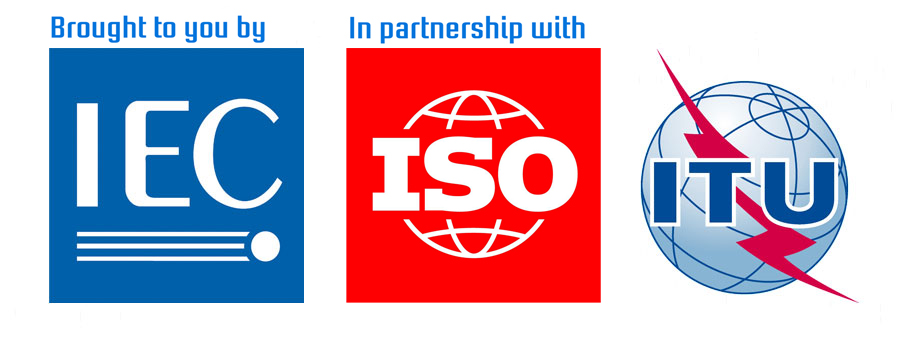Idea Exchange: Berlin’s tool to help urbanists cope with ‘award overload’
Editors note: This article first appeared in Citiscope.org and is reprinted with permission.
Citiscope is a nonprofit news outlet that covers innovations in cities around the world. More at Citiscope. org and citiscope.org/subscribe.
For anyone who tracks innovative city programs around the world, award programs are a mixed blessing.
The good part is the vetting. Most of the major urban award programs, such as the C40 Cities Awards for climate action or the Guangzhou International Award for Urban Innovation, employ panels of experts to judge applications from cities. Expert opinion is part of the value of awards programs. It certifies that winning cities have great ideas that other cities can learn from or perhaps replicate. (Disclosure: Citiscope Editor-in-Chief Neal Peirce served on the Guangzhou panel in 2014.)
The trouble is keeping track of all those winning ideas. There are now dozens of award programs out there. Some are global in reach. Others are focused only on cities in specific countries or regions. Or they recognize achievements only within certain disciplines such as transport or public administration. To learn from the winners, you have to know where to look. Which can mean searching across the websites of multiple organizations, some you may have never heard of.
That’s why the city of Berlin and the global association of cities known as Metropolis created something called the Policy Transfer Platform. It’s a website whose aim is to put case studies from many of these award programs in one place. The goal is to make it easier for urban practitioners, researchers and journalists to read up on award-winning programs from across the globe. The website also includes a social networking component that allows users to contact someone from the award-winning city who can answer any questions.
[Read: Inside the Guangzhou Award for urban innovation]
The project was started a bit more than two years ago by Barbara Berninger, who heads the Division for EU and International Afairs at Berlin’s Senate Department for Urban Development and the Environment. Berlin serves as the Europe regional secretariat for Metropolis. In her role as chair of Berlin’s Metropolis Initiative on Policy Transfer, Berninger assembled a team of experts to help implement the idea, including Professor Paul James of the University of Western Sydney in Australia.
Camille Toggenburger and Jonas Schorr are part of the small team managing the project. They say award overload has made it difficult for cities to learn as much as they can from all these recognition programs.
“If you want to research good urban practices, the problem is not just that there’s a million awards,” Schorr told me recently. “It’s also that the case studies all follow a different format. The awards websites often have different annual editions, each with their own microsite. So you have thousands of websites to screen, and nobody can do that.”
A unified hub
When the Policy Transfer Platform first publicly launched in 2014, it had a narrower purpose. It housed only a handful of case studies, mostly from Metropolis members.
But the Berlin team later saw the award fragmentation problem as an opportunity. They began reaching out to other associations and sponsors of urban awards to see if more groups would share their own city case studies. They also created a unified format for files in the system to make them easy to search and read through.
Now, dozens of case studies from four major award programs are loaded into the site — including the Metropolis Awards, the Guangzhou Award, the EUROCITIES Awards and the Deutsche Bank Urban Age Award. The write-ups can be searched by a geographic region (such as sub-Saharan Africa) or by subject (such as climate mitigation or gender equality). Schorr is talking with more organizations about sharing their award materials.
“I’m excited about our partnerships with all these award programs,” Schorr says. “They pay a lot of money to get a world-class jury to sift through hundreds of applications and do great work. It’s awesome to multiply that work and give more awareness to it.”
Reaching out
There’s more to the Policy Transfer Platform than award write-ups. It’s also becoming a community of urban experts, scholars and students who want to share their learnings. Anyone can sign up — it takes a few minutes to fill out a profile. Toggenburger, who looks after the community, screens all incoming submissions and assesses their seriousness. Once approved, new members are allowed to submit case studies of programs they’ve worked on. Those programs don’t have to have won awards, but they do have to pass another screen to make sure the writing is understandable and formatted correctly.
Members can also search for other members and reach out to them directly through the site’s messaging tool. Schorr says this is one of the most valuable features of the website because it allows users to find someone involved in a project to find out more information. There’s no charge for this. “That’s the value of this platform,” Schorr says. “First, to provide inspiration quickly. Second to allow you to assess if the project is relevant to your situation locally. And third, to connect you to a person.”
[Idea Exchange: What Singapore is learning from Copenhagen on bicycling]
Schorr says the messaging feature also provides a workaround to one of the problems of award programs: the fact that case studies usually glaze over the inevitable challenges or downsides that any project in local government faces.
“If you want the inside story, you can at least connect to the person who probably knows it,” Schorr says. “The written record never tells you about the problems, the power struggles. This is why you can contact the person.”
Check out the Policy Transfer Platform here: http://policytransfer. metropolis.org/


